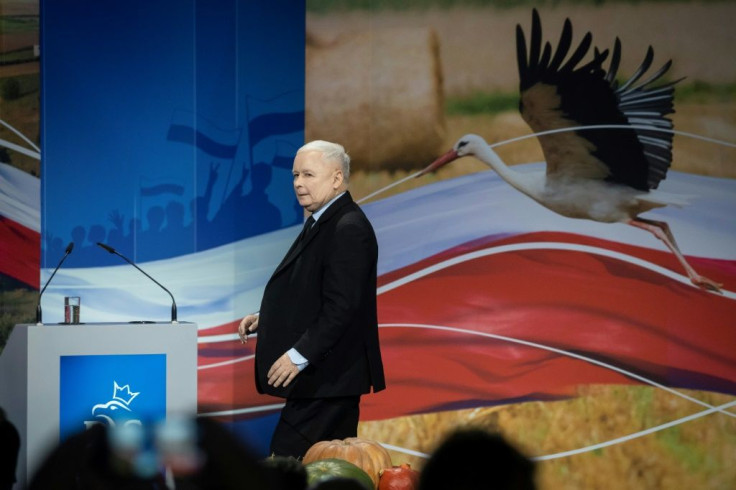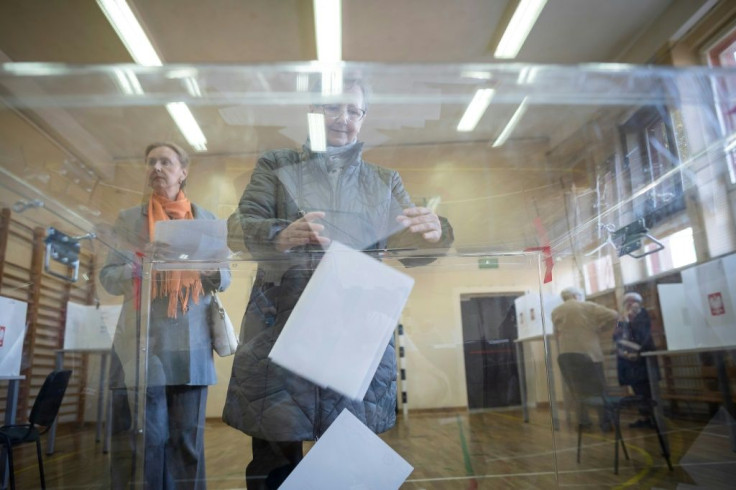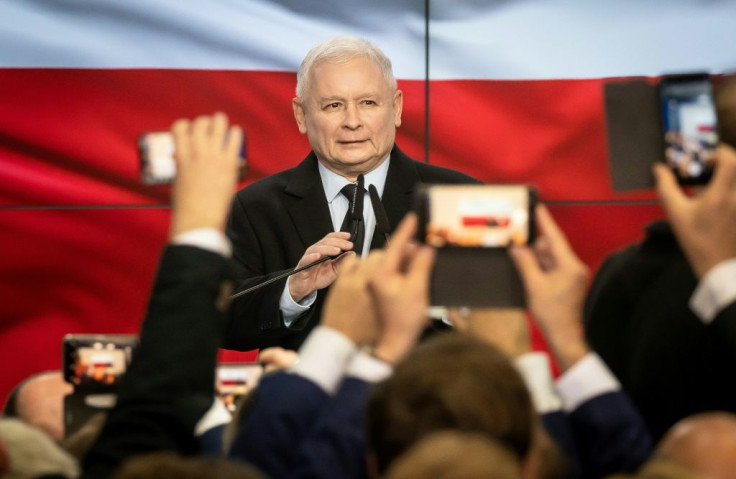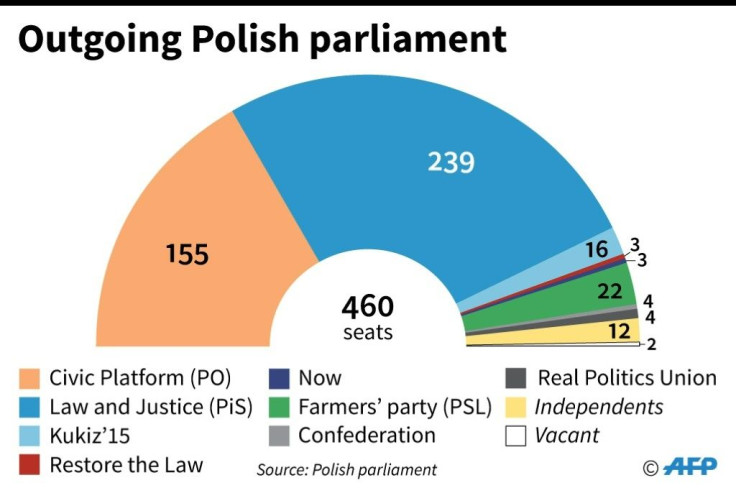Populists Win Poland Vote, Raising Fears Of New EU Tensions

Poland's governing right-wing populist party won a weekend election, full official results showed on Monday, retaining a parliamentary majority that could allow it to pursue a judicial reform agenda that has put it at loggerheads with the EU.
The triumph by the Law and Justice (PiS) party followed a campaign focussed on a raft of new welfare measures coupled with attacks on LGBT rights and Western values.
"We have obtained the mandate to continue our good change, to continue our policy, to continue to change Poland," said PiS leader Jaroslaw Kaczynski, widely regarded as Poland's ultimate powerbroker.
Since it took office in 2015, the PiS has in many ways upended Polish politics by limiting liberal democracy through a string of controversial court reforms that have stoked tension with the EU, as well as through its monopolisation of public media, among other measures.

Kaczynski has focussed on crafting a central European brand of illiberal democracy similar to that forged by Viktor Orban in Hungary, according to observers.
The PiS scored 43.59 percent of the popular vote, for 235 seats, according to full official results presented by the state elections commission on Monday.

Up to now it controlled 239 of the 460 seats in the lower house of parliament.
The opposition Civic Coalition (KO) scored 27.40 percent support for 134 seats. It draws support mainly from urban voters upset by the PiS's divisive politics, controversial judicial reforms and graft scandals.

The PiS lost control of the senate, or upper house, taking 48 of the 100 seats, something analysts said would provide a check on the party's legislative drives.
Presidential election
The PiS is expected to continue welfare spending, including a popular new child allowance along with pension hikes as it eyes the May 2020 presidential election, according to Warsaw University political analyst Stanislaw Mocek.

"They will leave the most controversial reforms (judicial, media) for after the presidential election," he said, referring to court reforms that risk undermining judicial independence and the rule of law, something likely to further antagonise Brussels.
Condemning the PiS's anti-LGBT drive and close church ties, but sharing its welfare goals, the left returned to parliament after a four-year hiatus with 12.56 percent of the vote and 49 seats.

Confederation, a new far-right libertarian coalition known for its anti-EU views, also made it over the five percent threshold to enter parliament with 6.81 percent for 11 seats.
The PSL farmers/Kukiz 15 alliance took 8.55 percent of the vote for 27 seats.
Welfare state
In office since 2015, Kaczynski's PiS has focussed on poorer rural voters, coupling family values with the introduction of welfare state spending, tax breaks for low-income earners and hikes to pensions and the minimum wage.
Kaczynski has tapped into a populist backlash against liberal elites, similar to trends in Western Europe and the US.
His party's bid to build a welfare state appeals to Poles who felt left behind amid the explosive growth and unfettered free-market drive after communism fell in 1989.
"Under the PiS government I retired earlier, at 60, I received an extra 13th pension payment," a 62-year-old Warsaw pensioner who only identified herself as Magdalena, told AFP on Monday, hailing the populist victory.
"We'll see how the situation for pensioners will evolve, perhaps medicine will become cheaper."
Sovereignty vs. federalism
Kaczynski has also stoked deep social division by attacking sexual minorities and rejecting Western liberal values, all with the tacit blessing of Poland's influential Catholic Church which holds sway over rural voters.
He is among several populist leaders in the European Union seeking greater national sovereignty over the federalism championed by France and Germany.
Critics attribute strong economic growth under the PiS to favourable external factors.
A tight labour market in the EU country of 38 million people saw it become the world's top temporary migrant labour destination in 2017, according to the OECD.
Turnout for Sunday's election tallied at 61.74 percent, the highest since Poland shed communism in 1989.
© Copyright AFP 2024. All rights reserved.





















